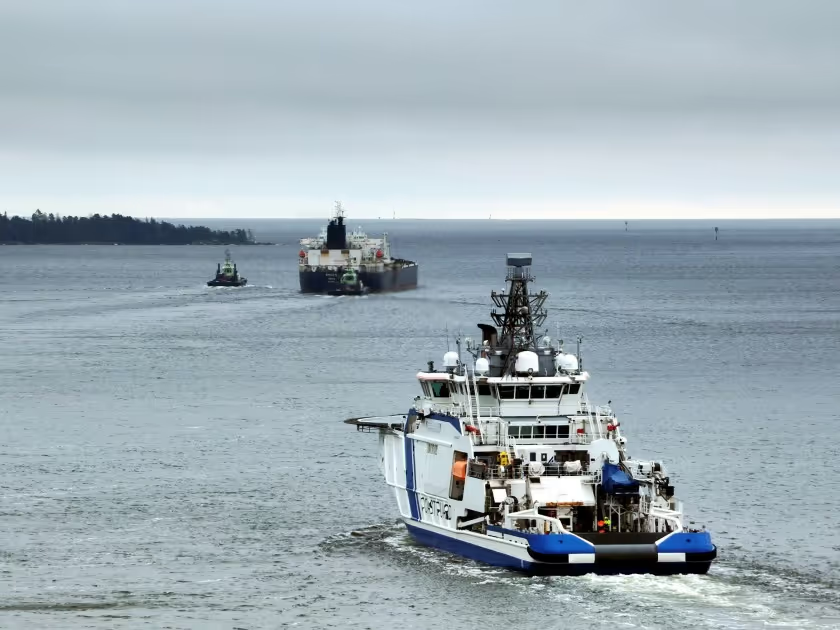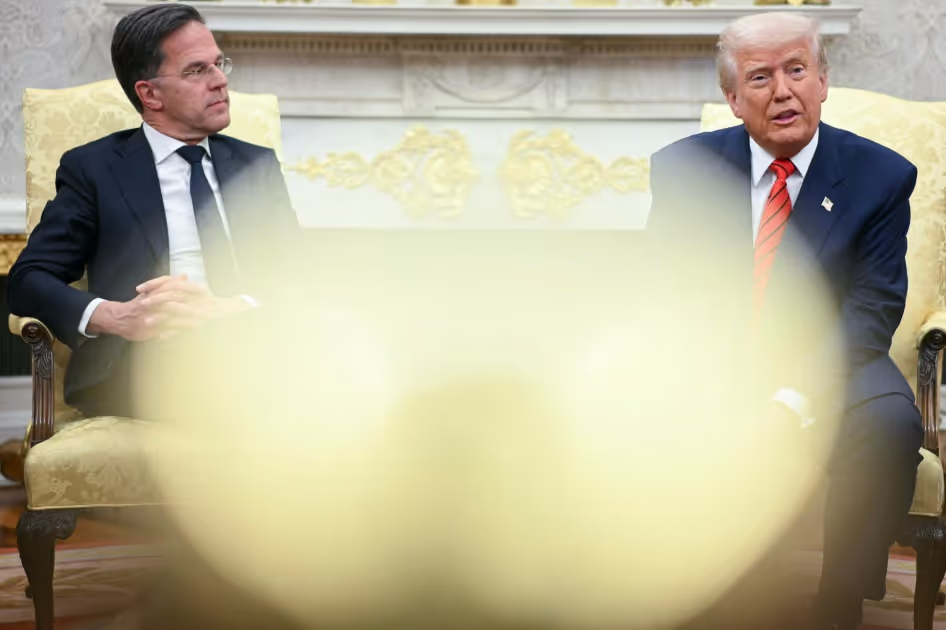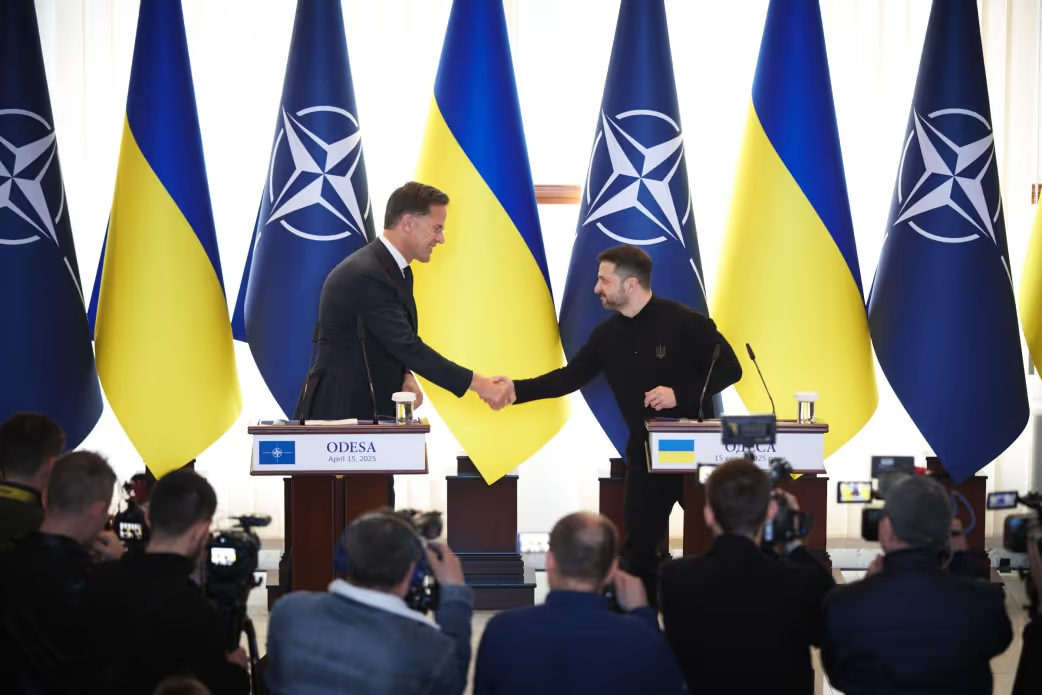Support Sestry
Even a small contribution to real journalism helps strengthen democracy. Join us, and together we will tell the world the inspiring stories of people fighting for freedom!
On May 20th, the European Union adopted its largest and most ambitious package of sanctions against Russia - the seventeenth to date. It targets the deployment of the Russian Federation’s «shadow fleet», which helps circumvent the oil embargo, as well as strengthening restrictions on Russian energy companies and blocking the assets of Kremlin allies in various countries. At the same time, the eighteenth package is already being prepared, which may include a ban on the import of Russian gas and uranium, and the use of frozen Russian assets for the reconstruction of Ukraine.
These sanctions are a key instrument of pressure on the Kremlin, yet their effectiveness, coordination with partners and consequences for European unity remain open questions. Ondřej Kolář, Member of the European Parliament from the Czech Republic, answered the most important of these in an exclusive interview with Sestry.
Sanctions against Russia: EU unity challenges and the position of the USA
Maryna Stepanenko: Mr Kolář, what do you believe is the main advantage of the seventeenth EU sanctions package in combating the circumvention of the Russian oil embargo? Can this package seriously complicate the activities of the so-called «shadow fleet»?
Ondřej Kolář: This is a complex issue. The fact that this is already the seventeenth sanctions package indicates that the policy is not working as effectively as it should. We allow too many exceptions, lack proper enforcement, and are unable to stop large-scale sanctions from being circumvented not only by individual companies but also by entire third countries. Sanctions do matter, but we must implement and enforce them much better.
With this seventeenth package, I hope we have finally recognised how serious the problem is, especially when it comes to the «shadow fleet», which Russia uses very effectively to bypass restrictions. I am glad that the EU is following the example of the United Kingdom on this issue, although it is disappointing that it took us about six months just to start discussing this step.
The EU is moving too slowly. Russia makes decisions quickly and decisively, while we lag behind. This must change - we must be the ones who set the agenda
I welcome this package and the fact that we have finally focused on what truly matters, such as the export of fossil fuels, on which Russia is heavily dependent. The more we block this flow, the better it is for us and for Ukraine. But we must act faster and more precisely. We cannot afford to continue playing catch-up.
You mentioned sanctions circumvention, and the seventeenth package targets not only Russian companies but also their partners in countries such as China and the UAE. You also said that the EU often reacts rather than sets the agenda. Do you see a realistic path for the EU to stay one step ahead of Russia? Is there a way to truly block all the loopholes it uses to bypass sanctions?
I am afraid not. In order to close all avenues of evasion, the EU would have to persuade the entire world to stop cooperating with Russia, and that is simply impossible. Countries such as North Korea, Iran and many from the BRICS group still maintain ties with Moscow, helping it to create the image of a nation merely defending itself and aspiring to a «normal life». This is dangerous, and we cannot accept it. Our only real instruments here are diplomacy and international trade.
The main mistake of the United States was the abandonment of USAID - this created gaps now being filled by other countries such as China and Russia
The EU lacks equivalent resources to intervene fully, but we cannot yield these spaces. We must compete, demonstrate that we are the better partner, and discard the notion that our colonial past makes us unwelcome. What China is doing in many places is simply a new form of colonialism.
We shall not defeat Russia on the battlefield as Nazi Germany was defeated in the Second World War. Therefore, we must use all the other tools at our disposal. Diplomacy and trade are areas where we can stay a step ahead.
Following the negotiations in Istanbul, the European Union is preparing its eighteenth package of sanctions targeting the Russian energy sector, financial system and «shadow fleet». Do you believe the EU is ready to act independently of the United States' position, particularly given the calls by the newly appointed Chief of Staff to the German Chancellor, Thorsten Frei, for tougher measures, including a ban on the import of Russian gas and uranium?
I would very much like greater independence from Russia because, if we do not achieve it fully, we shall only let ourselves down. Independence from the United States, however, is more complicated. We are still heavily dependent on Washington in matters of defence, security and trade. The United States has been our principal partner for eighty years. Nonetheless, everything changes.

We cannot afford to react to everything Donald Trump says. The chaos following his inauguration is colossal. In the morning, he says one thing, by lunchtime another, and in the evening he denies both statements. European leaders have realised that it is better to be patient and not to chase after every change in his rhetoric.
The main thing now is to stand on our own feet. This means being proactive and projecting the EU on a global scale. For too long, the EU has been focused on internal development - enlargement and domestic matters, which was important, but we have neglected our global role. Europe has always been a global player, and it must remain one if it is to succeed.
Europe is highly attractive - people seek a better life here because of our unparalleled social security system and quality of life. However, we cannot take this for granted. We must defend it ourselves.
Dependence on the United States is no longer acceptable. They must remain our closest partner, not our guardian
President Trump, in a private conversation with European leaders, acknowledged that Putin was not ready to end the war, but simultaneously refused new sanctions, instead proposing peace talks at the Vatican. How do you assess such a stance by the United States?
Donald Trump is a naïve man who does not understand what is happening. He has been deceived many times by Putin, and he does not even realise it. He cannot evaluate his mistakes because he simply does not acknowledge them. One cannot play poker with one’s cards face up, yet that is exactly what he is doing - showing his hand to Russia, announcing his plans, sending to Moscow unqualified people with no experience.
When he tells European leaders that he forced Putin to join negotiations with Ukraine, a week after those negotiations already took place in Istanbul - it is the same as saying: «I have been asleep for three years».
It is madness. He does not know what he is doing, what he is saying to the world or to his allies
European leaders now realise that they have a clown for a partner. I hope they have enough patience and the necessary tools to calmly and clearly explain to Trump that he is wrong, that he is making matters worse, not better. And that the Russians are playing him. They must make him understand that Russia is not interested in compromise. Unfortunately, we must admit that the current President of the United States is utterly confused and of no help whatsoever.
The United States Congress has introduced the Sanctioning Russia Act, which provides for a 500% tariff on imports from countries that purchase Russian oil and for the expansion of sanctions against Russian sovereign debt. Can Congress, even without support from the Trump administration, independently advance this initiative?
I would be pleased if it were successfully implemented. However, observing how Donald Trump treats American democracy, I am very pessimistic. He does not care about Congress, the Senate or the courts - only about himself and his propaganda.
It does not matter what Congress decides. If Trump does not like it, he will boycott it just as he ignores court rulings and anything else with which he disagrees. This complicates everything greatly.
One day he says he will impose harsh sanctions against Russia, and the next day - the opposite. So where do we stand? What game are we even playing? Nothing is clear.
I am grateful to American legislators for this initiative, but I am cautious. If Trump dislikes it, he will block it without hesitation. I should like to be mistaken, but I do not believe he will support anything that does not serve him.
Challenges on Ukraine’s path to European integration
In March, Hungary threatened to veto the extension of EU sanctions against Russia, which could have led to the unfreezing of substantial assets. Although a compromise was reached, Budapest continues to express criticism not only regarding sanctions but also concerning EU enlargement. How serious a risk is Hungary’s stance for the unity of the European Union in the context of Ukraine’s European integration? What consequences could it have for the integration process itself?
Hungary plays the role of a useful idiot in the EU - Vladimir Putin’s «Trojan horse». They are bringing others over to their side, with a certain degree of success in Slovakia, whose government has become lost in Russian falsehoods. While Ukraine is in the spotlight, the situation in the Western Balkans is even more serious.
Hungary loudly spreads nonsense about the Hungarian minority in Ukraine but quietly undermines the EU elsewhere - especially in Georgia and the Western Balkans, where Hungarian diplomats actively export Russian lies
In Bosnia and Herzegovina, Hungary is part of EUFOR (European Union Force - a military mission led by the EU in Bosnia and Herzegovina tasked with maintaining peace and stability in accordance with the Dayton Agreement - Edit.) and closely cooperates with leaders of Republika Srpska connected to Putin. They play a disgraceful role in blocking EU enlargement, parroting Russian propaganda.
The EU has realised that it must bypass Hungary, but this creates dangerous precedents. Forming a «coalition of the willing» simply to circumvent Hungary and Slovakia could undermine confidence in the rules and integrity of the EU.

Ultimately, the Hungarian people must choose change. We can only hope that the next elections will bring a new government and with it a fundamentally different position on Ukraine and the region. Until then, we must wait and be patient.
The European Parliament actively supports Ukraine’s European integration, in particular by accelerating the accession process and opening negotiation clusters. How do you assess the role of the European Parliament in this process and its influence on the decisions of the EU Council?
Parliament is a legislative body, so almost everything in the EU passes through it. However, it does not play a decisive role in enlargement, although we do influence the process.
For example, I am a member of the Committee on Foreign Affairs, and we closely monitor every country seeking to join the EU. Parliament prepares, votes on and publishes reports on the progress of each country - assessing how well they meet the accession criteria and offering recommendations.
We can also send missions for direct engagement with national partners to discuss the reforms necessary for moving closer to EU membership. But the final decision on enlargement does not rest with us.
We only provide support and guidance. The majority of Parliament supports enlargement, recognising that a larger EU is a stronger EU. Our role is to cooperate with national parliaments, not to pressure them, but to assist in carrying out the required reforms.
European Commission President Ursula von der Leyen noted that Ukraine could join the EU by 2030 if reforms continue at the current pace. How realistic do you consider this timeframe for Ukraine's accession?
I would be pleased, but much depends on when the war ends. That does not mean Ukraine should not join the EU before the war concludes - in fact, I believe it deserves a special status.
I often use the example of Puerto Rico - not a full US state, but a special territory with certain rights and responsibilities. Ukraine's situation is unique. None of the other candidate countries - Moldova, Montenegro, Albania or Serbia - have been at war since 2014. Ukraine has been at war for eleven years. We cannot treat it like an ordinary country.

It is important to set ambitious goals - they give us energy. But is 2030 realistic? Frankly, we do not even know what tomorrow will bring. When will the war end? How will it end? Will Russia keep its word?
That is why I believe a special status could be more effective and might even accelerate the process. Ukraine is being treated as if nothing has happened, and that is wrong.
Hybrid warfare and EU information security
In May 2025, Poland faced an unprecedented wave of hybrid attacks from Russia on the eve of its presidential elections. Do you believe the EU is adequately prepared for complex Russian information operations? What steps must be taken to strengthen information security in Europe?
Europe is not ready, not at all. Still, some states are more prepared than others. If you look at the Baltic and Scandinavian countries, their approach is completely different from that of Central Europe. It is strange, given our shared history. The Baltic countries were part of the Soviet Union. Czechoslovakia was occupied, but not for as long. Yet Estonia, Latvia, Lithuania and Finland are now very effective in countering hybrid threats. Meanwhile, countries like Hungary and Slovakia have completely lost their bearings.
Their minds have been washed by Russian propaganda
Poland, to its credit, speaks out loudly about the problem and wants to act. But in the Czech Republic, officials appear on television and say that disinformation does not exist - this is the worst possible approach.
We are lucky that bombs are not falling on our heads, but we are in a state of information warfare. And we are losing. In Brussels, no one even talks about Russian propaganda. It is not a topic. It seems that a country’s position depends on its historical experience with Russia.
We only began acknowledging the problem because Russia continues to escalate. They blew up an ammunition depot in the Czech Republic in 2014, and all we did was expel a few diplomats. Russian officials still move freely throughout the Schengen Area. No one can stop them.
Frankly, we lack courage. We have been unable to recognise Russia as an enemy for far too long. It does not want to be our friend - it wants to defeat us and reshape the world. Europe is unprepared, it is losing, and it has no coordinated response to hybrid threats. Each country acts on its own, and Russia exploits this chaos.
Russia influences EU countries not only through cyberattacks or disinformation, but also through so-called «soft power» - pro-Russian organisations, media outlets and even economic ties. How serious do you consider this threat to be? And what can the EU do to detect and stop such influence in time?
Yes, it is a serious threat - and Europe still cannot acknowledge it. We must stop convincing ourselves that Russia cannot be that bad. It is that bad. We must take Russian propaganda at face value - they broadcast exactly what the Kremlin thinks and wants.
We must respond to the warnings of our own security services. For example, in the Czech Republic, our intelligence has long stated that Russia’s ownership of numerous real estate properties poses a threat. Yet when it comes to confiscating them, the authorities suddenly claim that it is legally impossible. This fear of Russia must end. Yes, they have nuclear weapons, but their economy is ruined. They are not capable of winning a global conflict.
Europe acts as if it has Stockholm syndrome. Russia cannot match us economically or strategically, and they are not suicidal enough to start a nuclear war
We must acknowledge that Russia is the enemy and stop legitimising people associated with it. There is no reason why, especially in Central Europe, communists and pro-Russian populists should continue to be given media platforms. This must stop.
Russian propaganda must be banned. We must be tough on everyone: individuals, companies and institutions that help Russia gain influence. Bribery, manipulation, espionage - all of this must be tracked and punished. And those who speak out against Russia must be louder, clearer and relentless in explaining the reality. Because we are still unable to tell people what is really happening - and there is no excuse for what Russia is doing. None whatsoever.
Cover photo: Associated Press/East News
This project is co-financed by the Polish-American Freedom Foundation under the «Support Ukraine» programme, implemented by the Education for Democracy Foundation



Ukrainian journalist. Worked at the Ukrainian edition of Radio France Internationale. She was the senior editor of the English-language project of the Multimedia Broadcasting Platform of Ukraine. She held the position of international news department columnist at the «Inter» TV channel. She has also been involved in documentary filmmaking in the past. Currently, she is developing a Ukrainian-language YouTube project as an editor and scriptwriter.















